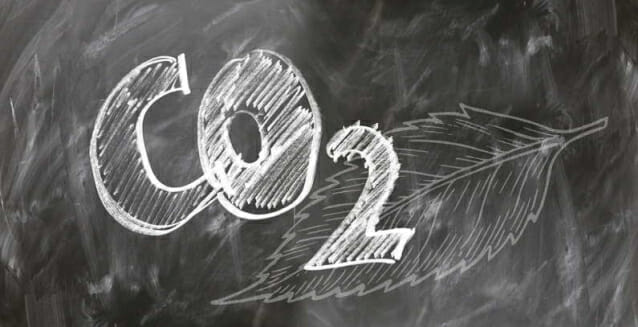
The government is spurring the development and commercial diffusion of CCUS (carbon dioxide capture, utilization, and storage) technology, a core technology for carbon neutrality in 2050.
In order to foster CCUS technology as a carbon-neutral new industry by 2030, it plans to promote system improvement while laying the foundation for the industry.
The Ministry of Trade, Industry and Energy announced on the afternoon of the 7th that it will hold a public-private joint’K-CCUS Promotion Team’ inauguration ceremony at COEX, Gangnam-gu, Seoul, and discuss ways to strengthen public-private cooperation.
As the discussion on carbon neutrality spreads, the importance of CCUS for the treatment of inevitable carbon dioxide is increasing. The government is also actively pursuing CCUS technology development, but it is determined that close public-private cooperation is necessary to speed up commercialization and CCUS new industrialization.
Securing commercialization technology for each field of collection, storage and utilization by 2025
The Ministry of Industry said, “The joint public-private K-CCUS promotion team will lead the public-private efforts for the new industrialization of CCUS as a central point of cooperation and a control tower for the spread of CCUS.”
Promotion Unit ▲Korea National Oil Corporation ▲Korea Gas Corporation ▲5 power generation companies (Southeast, South, Eastwest, West, Central Power) ▲SK Innovation ▲S Oil ▲Hyundai Oil Bank ▲POSCO ▲Sungshin Yanghoe ▲Youngpoong Industries ▲Hyundai Heavy Industries ▲Doosan Heavy Industries & Construction 50 companies participate. 20 universities nationwide with related departments and 10 research institutes including the Energy Economics Research Institute and Energy Technology Research Institute will also cooperate.
An official from the Ministry of Industry said, “The promotion team will not only identify the demand for technology development in the industry and discover the demand for policy, but also propose measures to spread CCUS achievements and revitalize the industrial ecosystem to the government.” “We will be in charge of technology development, manpower training and international cooperation.”
The government also plans to support CCUS through multi-ministerial projects to foster CCUS as a new industry and to preoccupy new markets in response to global climate crisis in the early stages.
By expanding empirical investments in already developed technologies, we will secure commercialization technologies for each field of capture, storage, and utilization by 2025. The goal is to promote the step-by-step demonstration of establishing a medium-sized test bed for each industry, and secure commercial-scale capture technology for major industries by 2024.

Establishment of a demonstration and commercialization support center in Yeosu, Jeollanam-do
60 billion won will be invested from this year to 2024 for small and medium-sized demonstration projects in the liquefied natural gas (LNG), steel, cement, and petrochemical industries. In connection with the Donghae Gas Field, hydrogen will be preliminary in the second half of the year, and a mid- to large-scale capture demonstration project will be promoted.
The storage technology will store 12 million tons of carbon dioxide (400,000 tons per year) from 2025 through a mid-scale integrated demonstration project using the Donghae Gas Field, and advance the technology for the entire cycle of collection, transport and storage. As for the technologies used, early demonstration and commercialization technologies will be selected, and support for early commercialization of CCU technologies will be strengthened through intensive investment in R&D.
By 2023, through exploration and drilling on the domestic continental shelf, a large-scale storage of 100 million tons with economical efficiency and safety will be secured first, and additional storage will be secured by 2030. 100 million tons can store 4 million tons of carbon dioxide annually for 30 years.
By establishing the’CCU Demonstration and Commercialization Support Center’ in Yeosu, Jeollanam-do within this year, it will also foster startups and innovative companies. The work of enacting related laws will also be initiated this year. It is planning to promote the establishment of a single law that contains measures to establish industrial foundations such as CCUS technology development and corporate development, as well as safety and environmental management systems for facilities.
Related Articles

A catalyst that mass-produces hydrogen from carbon dioxide was developed.

SK Ino Ulsan CLX, UNIST and CO2 reduction system demonstration

Launched the Carbon Neutral Council for the Oil Refinery… ‘Total power’ to reduce CO2 and greenhouse gas

KEPCO promotes’green hydrogen business’ without CO2 emission
Lee Ho-hyun, director of energy innovation policy at the Ministry of Industry, said, “Public-private collaboration is essential to reduce greenhouse gases with CCUS technology and to foster this industry as a new climate-responsive industry with global competitiveness.
He added, “Please make efforts to promote the early activation of the CCUS new industry by making and spreading successful cases of public-private and private collaboration with the promotion team being the center.” I will do my best.”
